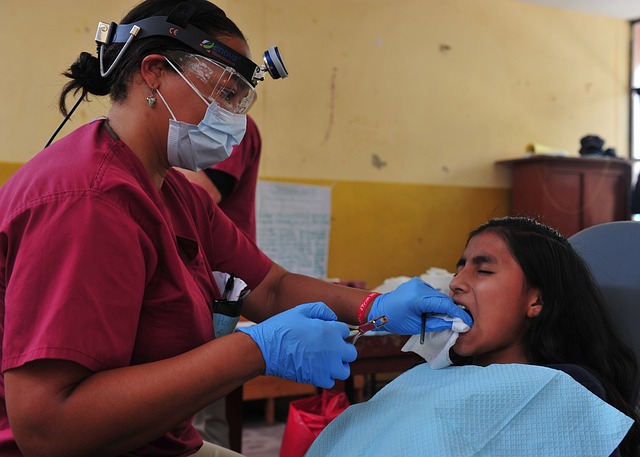Despite your dentist’s expertise in their placement and your diligent precautions, you might observe that sutures (stitches) placed after oral surgery procedures, such as wisdom tooth extraction in Farmington Hills or routine tooth removal, become loose or dislodge earlier than expected.
What actions should you take? Your response to this situation typically hinges on a few key factors:
- The underlying reasons for placing the stitches (as they serve multiple purposes).
- The timeline within which they loosened or fell out.
- The original type and quantity of stitches used.
- The consequences arising from the failure of the sutures.
In the following discussion, we offer examples illustrating how a dentist might assess and weigh each of these factors when determining the appropriate steps to address the situation for their patient.
What should you do if you’ve noticed stitches that have fallen out or come loose?
If you’ve observed stitches that have come loose or fallen out, the recommended course of action is to promptly contact your dentist in Farmington Hills. Inform them about the situation so they can evaluate the condition and provide appropriate guidance. The dentist will assess the type of stitches used, the reason for their placement, and the stage of your healing process. Based on this assessment, they will determine if any further action is necessary. It’s crucial to seek professional advice to ensure proper healing and minimize any potential complications following your oral surgery procedure.
Examples and general rules of thumb about premature suture loss.
Premature suture loss can arise due to various factors and conditions. Here are examples and general rules of thumb to consider:
Chewing and Diet:
Chewing hard or tough foods too soon after surgery can strain stitches. Stick to a soft diet initially and gradually reintroduce harder foods as advised by your dentist.
Oral Hygiene:
Over Aggressive brushing or improper oral hygiene practices can dislodge sutures. Follow your dentist’s instructions for gentle cleaning.
Tissue Healing:
Sutures might loosen as tissues heal and change shape. It’s common for dissolvable sutures to disintegrate before removal.
Infection or Inflammation:
Infection or inflammation can compromise suture stability. If you notice signs like increased pain or swelling, consult your dentist promptly.
Stress on Area:
Actions like talking, laughing, or yawning might stress the surgical site, leading to suture loss. Be mindful of your movements.
Do wisdom teeth stitches dissolve or fall out?
Wisdom teeth stitches typically dissolve on their own as the healing process progresses. They are often designed to disintegrate over time, eliminating the need for removal. However, if non-dissolvable stitches were used, your dentist will remove them during a follow-up appointment.
What’s the Best Way to Care for Wisdom Teeth Stitches?
Caring for wisdom teeth stitches is essential to promote proper healing and minimize the risk of complications. Here’s the best way to care for them:
Hands-Off Approach:
Avoid touching the stitches with your fingers or tongue. Keeping them undisturbed helps prevent irritation or accidental dislodging.
Dietary Considerations:
Stick to a soft diet for the first few days after surgery. Avoid crunchy, hard, or spicy foods that could disturb the stitches. Opt for cool or lukewarm foods to prevent thermal irritation.
Oral Hygiene:
Gently rinse your mouth with warm salt water after meals, being careful not to swish vigorously. Maintain regular oral hygiene, but avoid the surgical site while brushing for the initial days.
Avoid Irritants:
Steer clear of alcohol-based mouthwashes, tobacco, and straws, as they can hinder healing and potentially dislodge stitches.
Pain Management:
Over-the-counter pain relievers can help manage discomfort, as prescribed by your dentist. Be cautious when taking them, following dosage instructions.
Observation:
Monitor the stitches for any signs of infection, excessive bleeding, or worsening pain. If you notice these issues, promptly contact your dentist.
Follow Instructions:
Adhere to post-operative instructions provided by your dentist. Attend follow-up appointments for them to assess healing progress and potentially remove stitches.
How Can You Tell If Your Wisdom Teeth Stitches Have an Infection?
Detecting an infection around wisdom teeth stitches involves noting specific signs. Watch for increasing pain, swelling, or warmth around the surgical site. Foul odor, pus discharge, or a bad taste in the mouth could indicate infection. Additionally, persistent fever, chills, or overall malaise might point to infection. If you experience these symptoms, it’s crucial to contact your dentist promptly. Early intervention can prevent complications. Your dental professional will evaluate the situation, possibly prescribe antibiotics, and provide appropriate guidance to ensure proper healing and recovery.
Conclusion
Concerned about your wisdom teeth stitches or oral health? Turn to Pearl Dental PC for expert guidance and care. If you suspect an infection or have any concerns, don’t hesitate. Contact us at (248) 476-4416 to schedule an appointment. Our dedicated team is here to ensure your well-being and provide the necessary assistance for a healthy recovery. Your oral health is our priority, and we look forward to helping you achieve optimal healing and comfort.

